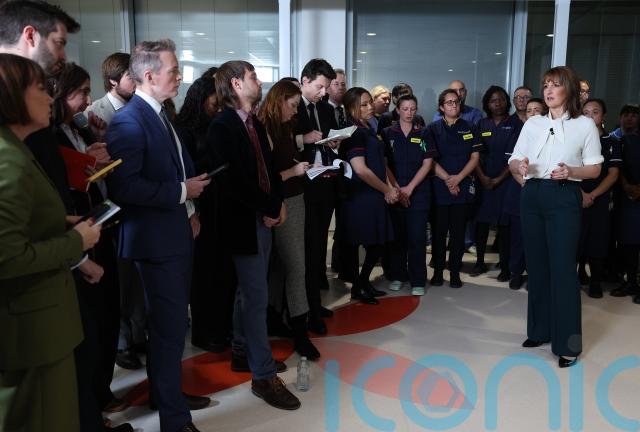
Rachel Reeves will face further questions after delivering a Budget that raised tax by £26 billion but was overshadowed by an unprecedented leak.
The Chancellor’s decisions put Britain on course for a record tax burden as she hiked levies after weaker economic forecasts left holes in her previous spending plans.
The increases are also needed to pay for increased welfare spending, with Ms Reeves announcing the abolition of the two-child benefit cap, expected to lift 450,000 children out of poverty.

Having abandoned plans for a manifesto-busting income tax rise, the Chancellor opted for a range of smaller tax increases to pay for Government spending and build a larger buffer against her borrowing rules.
These include a new pay-per-mile tax for electric vehicles, increased taxes on online betting and a so-called “mansion tax” on homes worth more than £2 million.
But she continued to face accusations of breaching Labour’s election promise not to raise taxes on “working people” after deciding to keep tax thresholds frozen until 2030/31 and levying national insurance on some pension contributions.
Ms Reeves sought to defend herself on Wednesday, telling a press conference the manifesto had been “very clear it was the rates of income tax, national insurance and VAT” that would not be raised.
But she added: “I’m not going to get into semantics. I recognise that we are asking people to contribute more by freezing those allowances.”
While the Chancellor faces questions from the media on Thursday, economists at the influential Institute for Fiscal Studies (IFS) and Resolution Foundation think tanks will give their full verdicts on her Budget.
In its initial response, the Resolution Foundation warned of a hit to living standards after the Office for Budget Responsibility (OBR) said threshold freezes had contributed to a downgrade in forecasts for real household disposable income.
And experts said taxing pension contributions would both reduce workers’ take-home pay and see many people saving even less for their retirement.
Meanwhile, the IFS described the Budget as a “spend now, pay later” announcement, saying Ms Reeves was relying “heavily” on tax rises just before the next election and expressing “scepticism” about whether these would be implemented.
Conservative leader Kemi Badenoch said the Budget was a “total humiliation” for Rachel Reeves and “if she had any decency she would resign”.
But the Budget announcement was overshadowed by an unprecedented blunder that saw the OBR publish its assessment of the economy and the Chancellor’s plans before Ms Reeves had even begun her speech.
The OBR apologised, blaming a “technical error”, and its chairman Richard Hughes said an internal investigation had been launched to “get to the fundamental causes and make sure it doesn’t happen again”.
The investigation will report to the OBR’s oversight board, the Treasury and the Commons Treasury Committee and Mr Hughes said he would “abide by the recommendations” – including if they suggest he should quit.
Subscribe or register today to discover more from DonegalLive.ie
Buy the e-paper of the Donegal Democrat, Donegal People's Press, Donegal Post and Inish Times here for instant access to Donegal's premier news titles.
Keep up with the latest news from Donegal with our daily newsletter featuring the most important stories of the day delivered to your inbox every evening at 5pm.